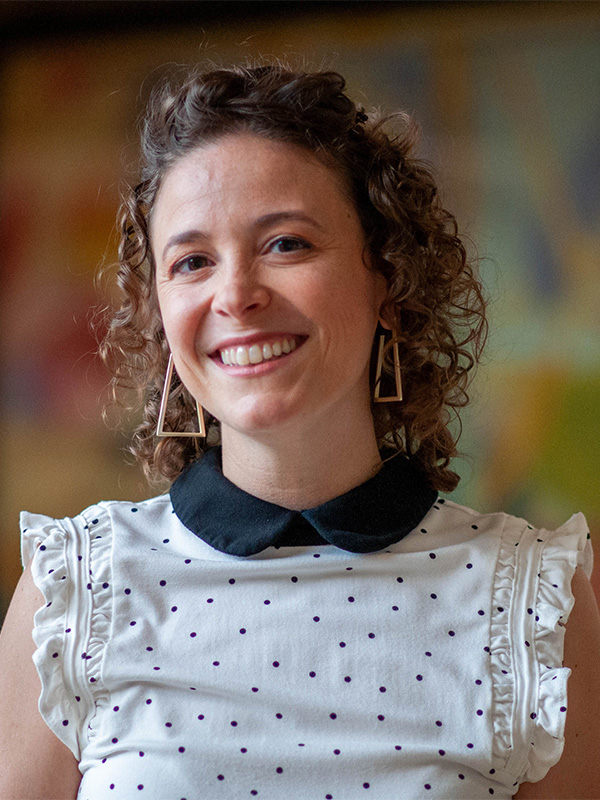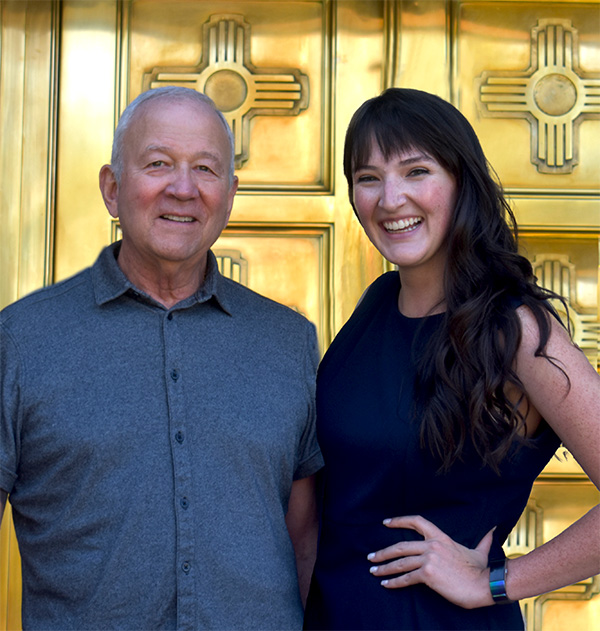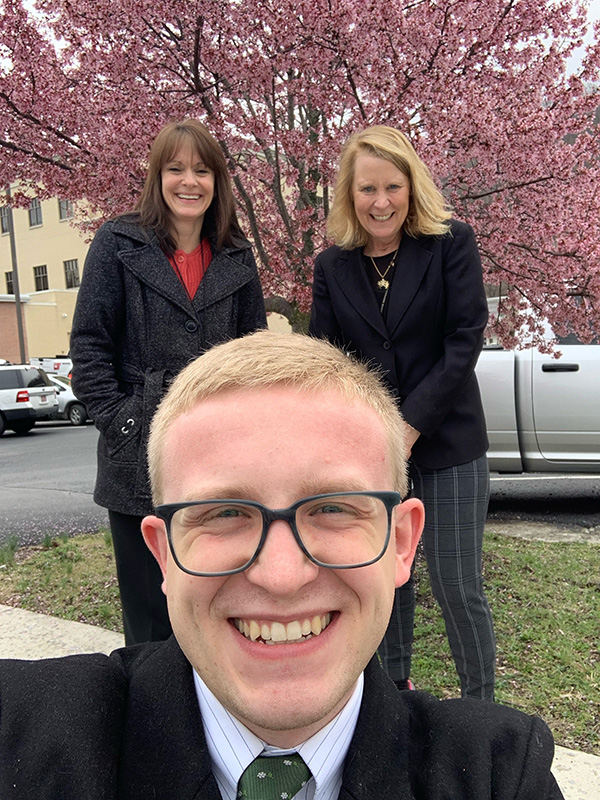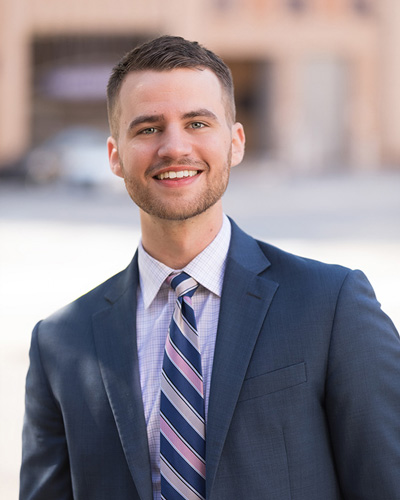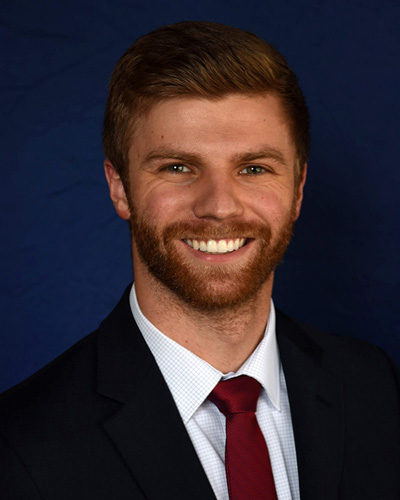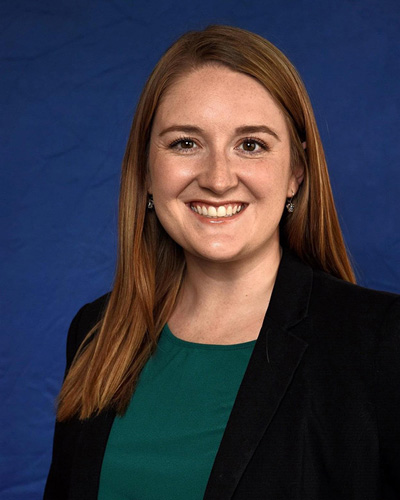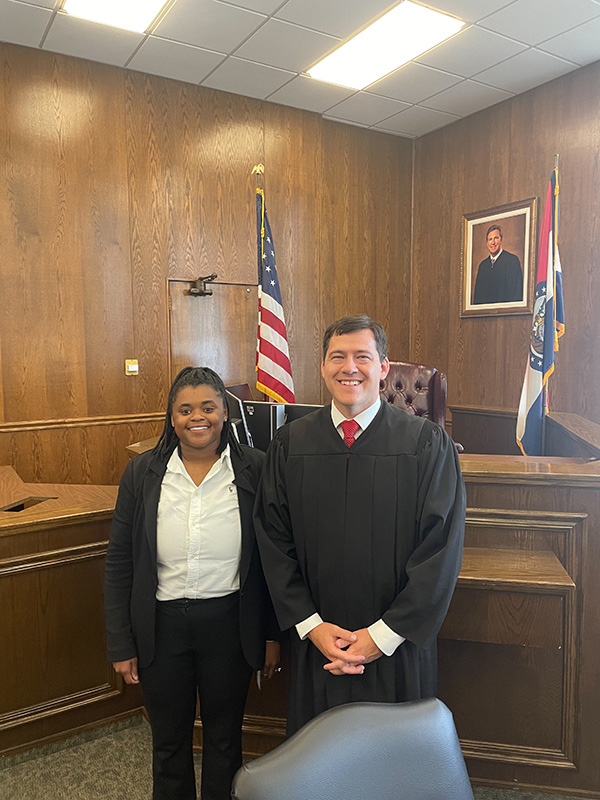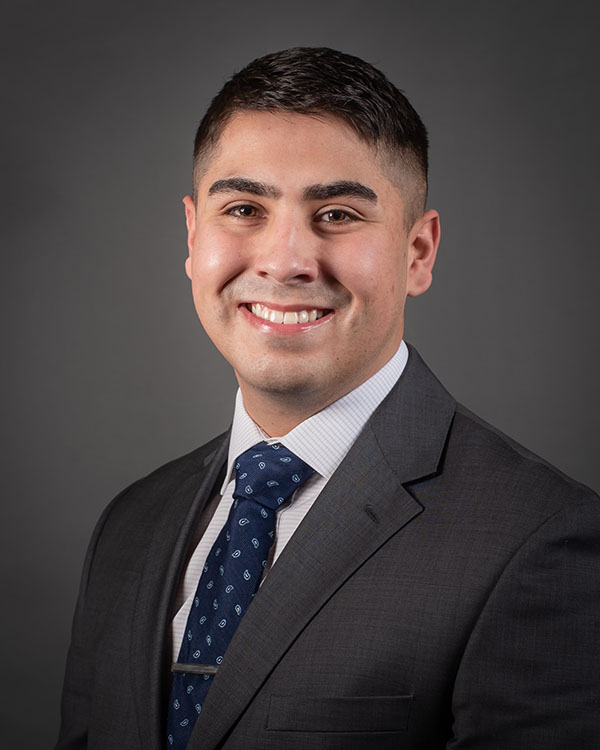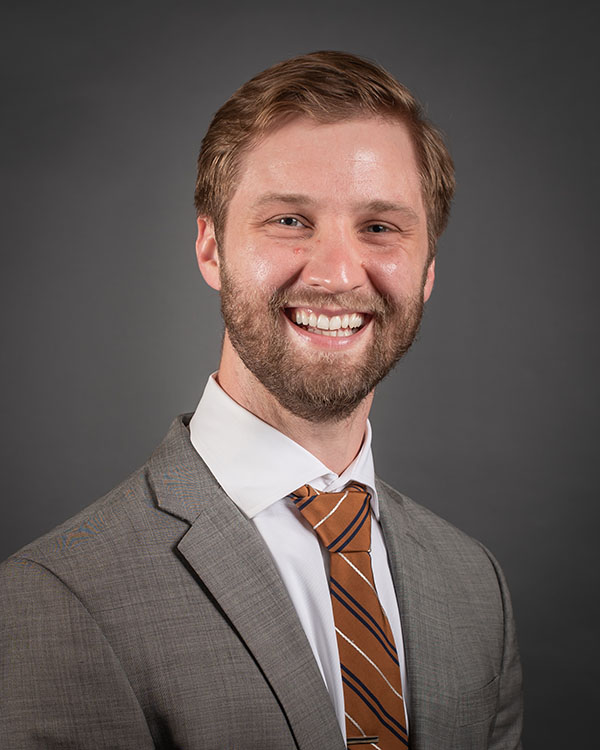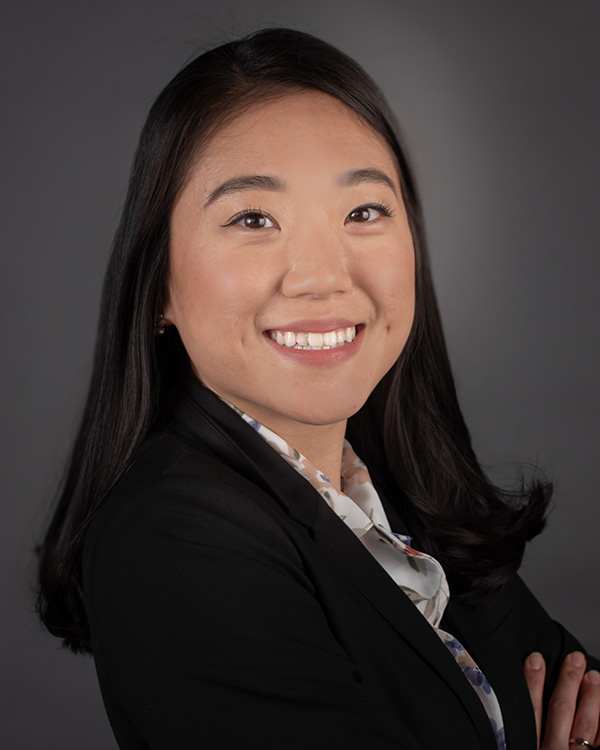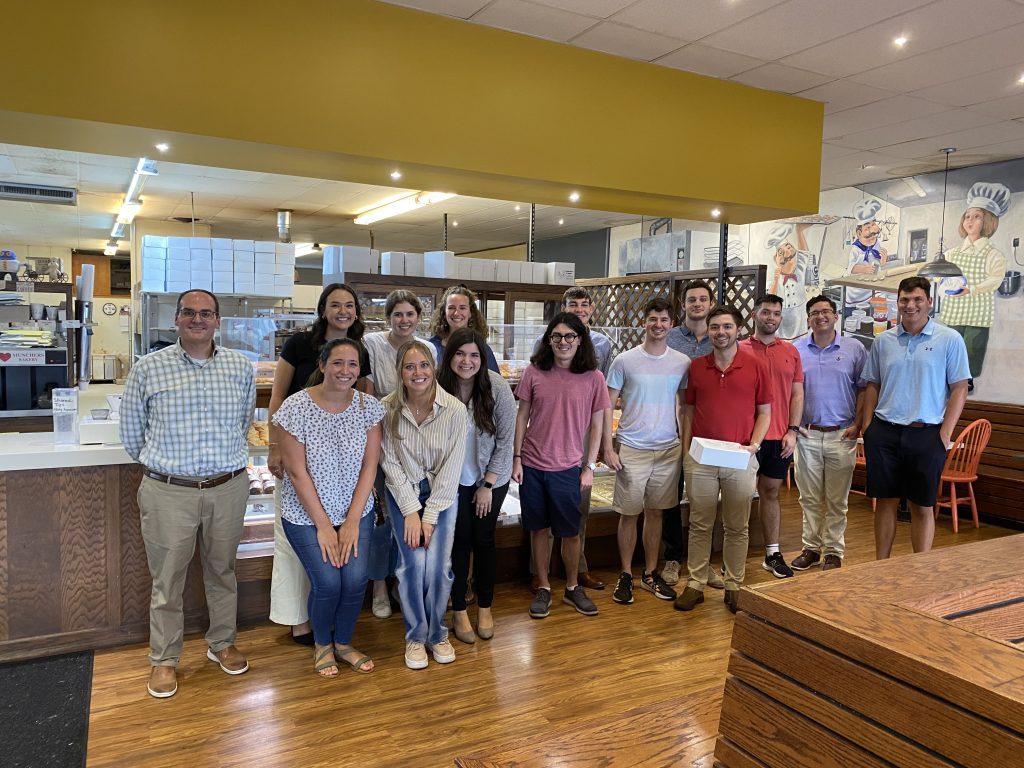Kat Girod has tested her oral argument skills in competition at the Duberstein Bankruptcy Moot Court Competition through the University of Kansas School of Law Moot Court program. She joined the program last spring and since then has developed her legal research and writing as well as oral argument skills. She plans to continue competing this year, as well as help with KU Law’s In-House Moot Court Competition this fall.
The program consistently ranks among the nation’s top 30. In 2022, KU Law’s Moot Court Program ranked 14th nationwide.
“Moot court allows me to do something I enjoy while sharpening skills I know I will use in practice,” Girod said.
Girod shared her experience with the Moot Court Program for a Q&A.
Can you generally describe moot court and what kind of work goes into it?
Moot Court simulates appellate-level advocacy. In the first stage, students write an argumentative brief advocating for one side of an issue. In the second stage, students present oral arguments. Most competitions require students to argue both sides of the issue at least once. Students face off against other teams in a bracket-style competition. To get ready for the competition, Moot Court teams practice oral arguments many, many times. Typically, teams serve as practice judges for each other. That way, everyone has a chance to practice in front of a “bench” of judges before the actual competition.
Are there specific skills you have developed or improved through this experience?
Through Moot Court, I improved my legal research, legal writing and oral argumentation skills. I also became more confident as an advocate through the experience. At the competition, practitioners, sitting judges, retired judges and law professors serve as the judges for the rounds of oral arguments. Standing up in front of them to deliver oral arguments was scary! But, after competing, I was proud of how we performed, thanks to the preparation my team and I did.
How do you think this experience will impact the rest of your time in law school?
Moot Court allows me to do something I enjoy while sharpening skills I know I will use in practice.
What has been your favorite part of participating in Moot Court?
I love being part of the Moot Court community and am excited to continue to connect with other students in the program. Also, Professor Stephen Ware serves as our coach. It has been really fun and such a privilege to work so closely with a professor, especially in one of his areas of expertise! Professor Ware also arranged practices for our team with bankruptcy attorneys from his network. I was very grateful to meet and learn from his network of colleagues.
What would you say to law students considering joining Moot Court?
Moot Court requires a lot of time and effort, but the experience is well worth it. You grow as a student, as an advocate, and as a member of a team.
This post is the seventh in a series highlighting hands-on learning opportunities at KU Law. Stay tuned for more student experiences in clinics, field placements and experiential learning programs.
Read previous Q&A features with:
Peyton Weatherbie, Elder Law Field Placement Program
Lauren Stahl, Transactional Law Competition
Kristen Andrews, Field Placement Program
Joan Lee, Mock Trial
Richard Weber, Medical-Legal Partnership
Dylan Dupre, Judicial Field Placement
—By Sarah Pickel
